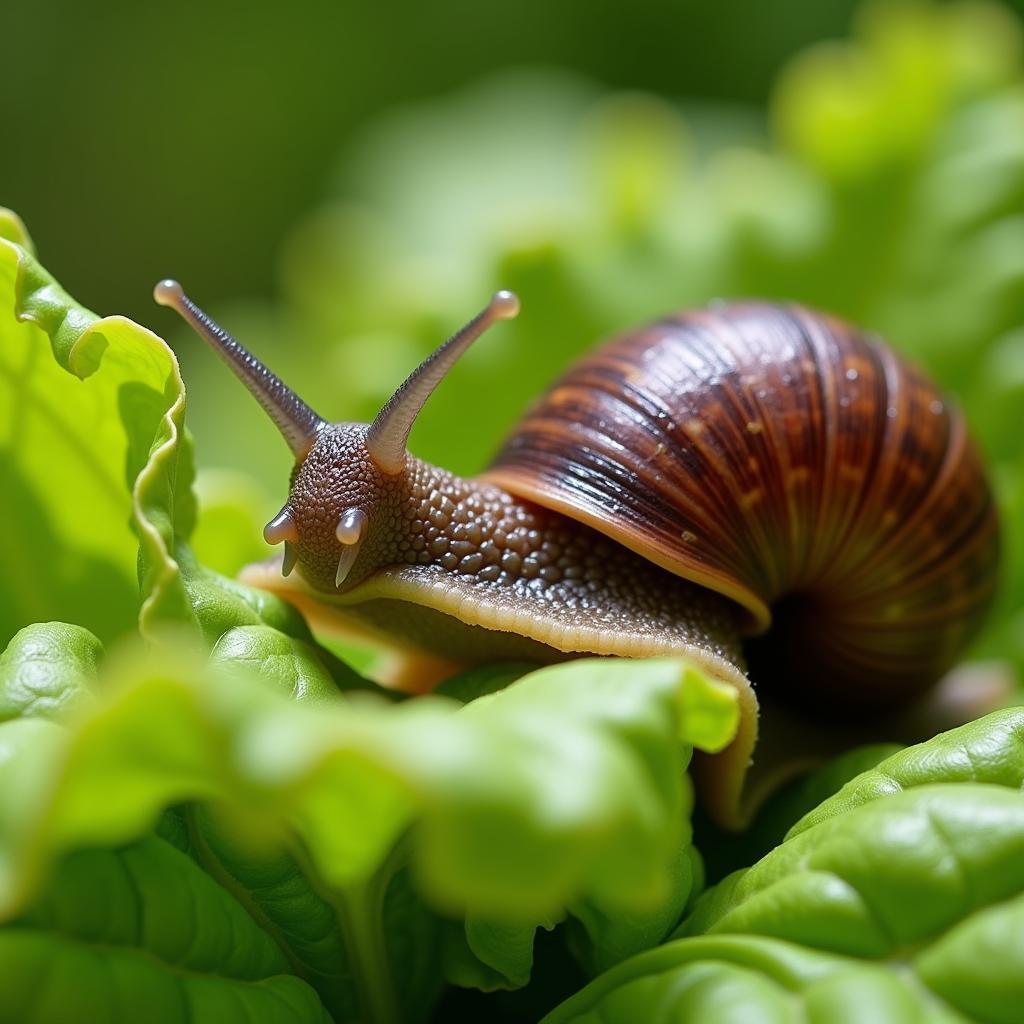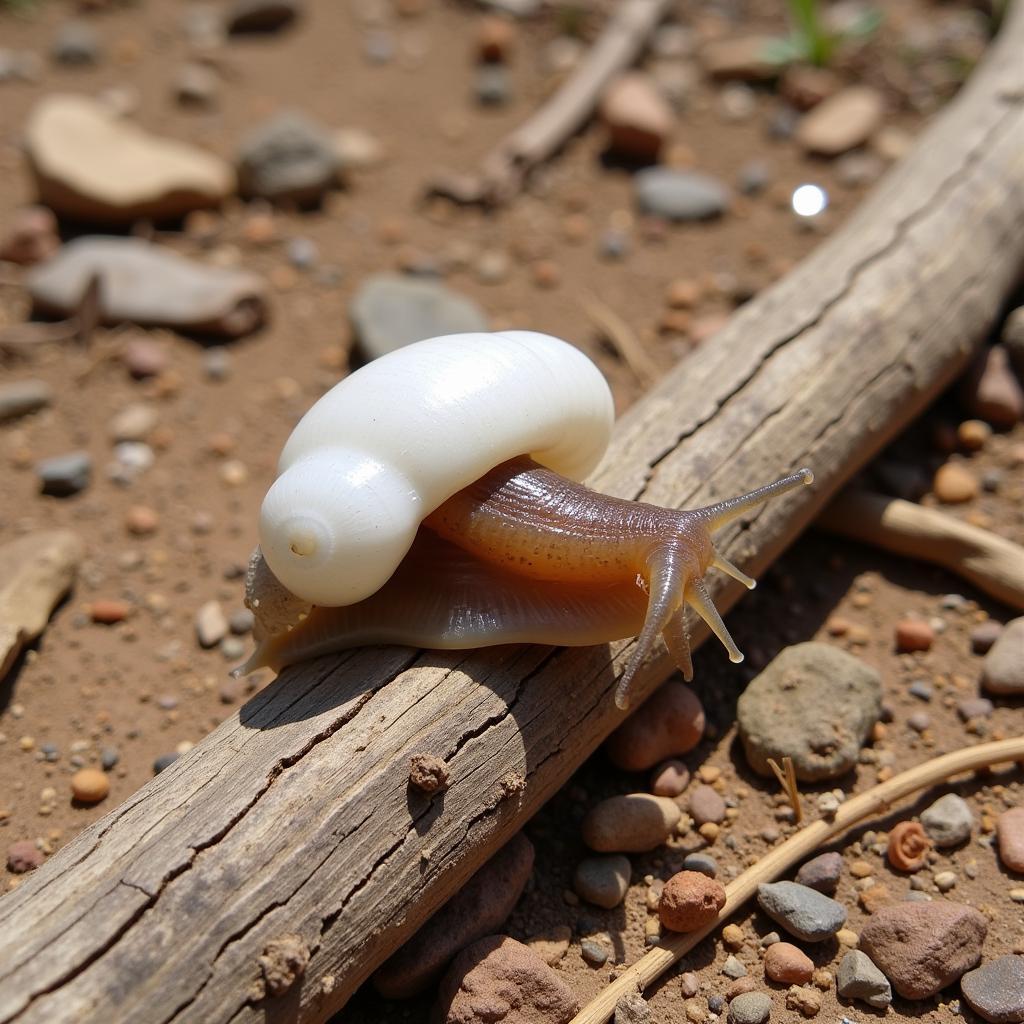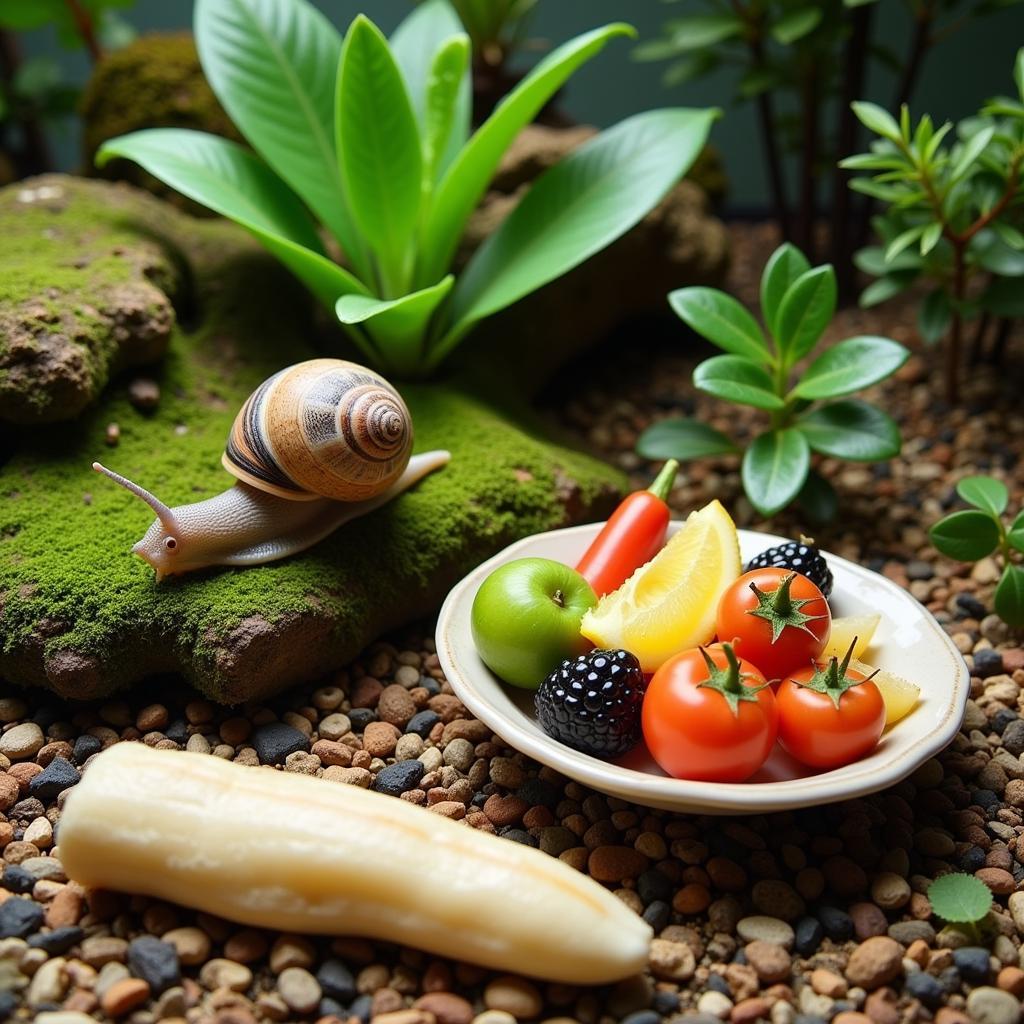Snails, those fascinating creatures that carry their homes on their backs, are known for their slow pace and deliberate movements. But have you ever wondered, “How Long Can Snails Go Without Food?” It’s a question that piques the curiosity of many, especially those who keep snails as pets or encounter them in their gardens.
 Snail munching on lettuce in a garden
Snail munching on lettuce in a garden
The answer to this intriguing question isn’t as straightforward as you might think. A snail’s ability to survive without food depends on various factors, including its species, age, health, and environmental conditions.
Factors Influencing a Snail’s Fasting Ability
Let’s delve into the key factors that determine how long these resilient creatures can endure without their leafy greens:
- Species: Different snail species possess varying metabolisms and energy storage capacities. For instance, larger snail species tend to have a longer fasting duration compared to their smaller counterparts.
- Age and Health: Just like with many animals, young and healthy snails can generally withstand longer periods without food than older or unwell snails.
- Environmental Conditions: Factors such as temperature and humidity play a significant role. Snails are more active in warm, humid environments, leading to higher energy expenditure and a shorter fasting duration. Conversely, they can survive longer without food in cooler, drier conditions by entering a state of aestivation, similar to hibernation.
- Recent Feeding: A snail that has recently enjoyed a nutritious meal will have more energy reserves, allowing it to survive longer without food compared to a snail that hasn’t eaten in a while.
 Snail in aestivation on a dry log
Snail in aestivation on a dry log
Average Fasting Time for Snails
While there’s no one-size-fits-all answer, a healthy, adult snail can typically survive 1-3 months without food under favorable conditions. However, it’s essential to remember that this is a general estimate, and individual circumstances can vary significantly.
Signs of a Hungry Snail
It’s crucial to recognize when your snail companion might be running low on energy reserves. Here are some telltale signs to watch out for:
- Lethargy and Reduced Activity: A hungry snail will exhibit less movement and may appear sluggish compared to its usual behavior.
- Increased Mucus Production: Snails produce mucus for locomotion, and a hungry snail may produce excess mucus in an attempt to conserve energy by reducing friction.
- Loss of Appetite: This may seem obvious, but a snail that refuses food or shows disinterest in eating is likely hungry and needs nourishment.
Tips for Feeding Your Pet Snail
Providing a suitable diet is essential for the well-being of your pet snail. Here are some tips:
- Offer a Variety of Fresh Fruits and Vegetables: Snails relish a diverse diet that includes leafy greens like lettuce, kale, and spinach, as well as fruits like apples, bananas, and cucumbers.
- Provide a Source of Calcium: Calcium is crucial for maintaining a snail’s shell health. Offer a cuttlebone or crushed eggshells as a calcium supplement.
- Maintain a Clean and Humid Environment: Ensure the snail’s enclosure is clean and provides adequate humidity levels to prevent dehydration.
 A pet snail in a terrarium with a variety of food
A pet snail in a terrarium with a variety of food
FAQs about Snails and Fasting
Can snails starve to death?
Yes, like any living creature, snails can starve to death if deprived of food for extended periods. The duration varies depending on the factors discussed earlier.
Do snails need to eat every day?
While snails don’t need to eat every day, providing them with a constant food supply is best to ensure they receive adequate nutrition.
What should I do if my snail isn’t eating?
If your snail refuses food, double-check that the food is fresh and appealing. If the problem persists, consult a veterinarian experienced with invertebrates.
Seeking Expert Guidance
For specific concerns about your pet snail’s health or dietary needs, it’s always advisable to seek guidance from a qualified veterinarian specializing in exotic animals.
Do you have other burning questions about snails or other intriguing creatures? Explore our dijon food section for more fascinating insights into the world of gastronomy and nature’s wonders. Remember, at Mina Cones Food, we’re passionate about satisfying your curiosity and nourishing your love for all things food-related.
Need Assistance?
Contact us at Phone Number: 02437655121, Email: minacones@gmail.com Or visit us at: 3PGH+8R9, ĐT70A, thôn Trung, Bắc Từ Liêm, Hà Nội, Việt Nam. We have a 24/7 customer support team.